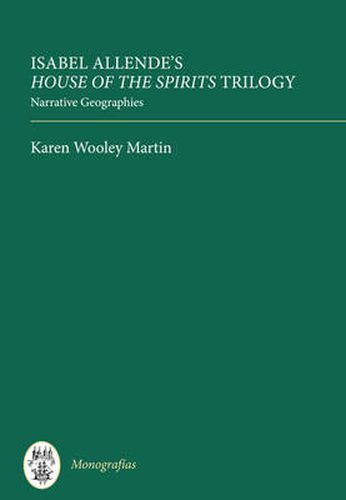Readings Newsletter
Become a Readings Member to make your shopping experience even easier.
Sign in or sign up for free!
You’re not far away from qualifying for FREE standard shipping within Australia
You’ve qualified for FREE standard shipping within Australia
The cart is loading…






Allende’s very popular novels have attracted both critical approval and opprobrium, often at the expense of genuine analysis. This sophisticated study explores the narrative architecture of Allende’s House of the Spirits [1982], Daughter of Fortune [1999], and Portrait in Sepia [2000] as a trilogy, proposing that the places created in these novels subvert the patriarchal norms that have governed politics, sexuality, and ethnicity.
Rooted in the Foucauldian premise that the history of space is essentially the history of power, and supported by Susan Stanford Friedman’s cultural geographies of encounter as well as Gloria Anzaldua’s study of borderlands, this study shows that, by rejecting traditional spatial hierarchies, Allende’s trilogy systematically deterritorializes the elite while shifting the previously marginalized to the physical and thematic centers of her works. This movement provides the narrative energy which draws the reader into Allende’s universe, and sustains the ‘good story’ for which she has been universally acclaimed.
KAREN WOOLEY MARTIN is Associate Professor of Spanish at Union University, Jackson, Tennessee.
$9.00 standard shipping within Australia
FREE standard shipping within Australia for orders over $100.00
Express & International shipping calculated at checkout
Allende’s very popular novels have attracted both critical approval and opprobrium, often at the expense of genuine analysis. This sophisticated study explores the narrative architecture of Allende’s House of the Spirits [1982], Daughter of Fortune [1999], and Portrait in Sepia [2000] as a trilogy, proposing that the places created in these novels subvert the patriarchal norms that have governed politics, sexuality, and ethnicity.
Rooted in the Foucauldian premise that the history of space is essentially the history of power, and supported by Susan Stanford Friedman’s cultural geographies of encounter as well as Gloria Anzaldua’s study of borderlands, this study shows that, by rejecting traditional spatial hierarchies, Allende’s trilogy systematically deterritorializes the elite while shifting the previously marginalized to the physical and thematic centers of her works. This movement provides the narrative energy which draws the reader into Allende’s universe, and sustains the ‘good story’ for which she has been universally acclaimed.
KAREN WOOLEY MARTIN is Associate Professor of Spanish at Union University, Jackson, Tennessee.